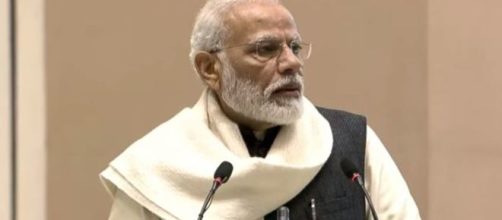The largest opposition Indian Congress has protested against the government's controversial law on minorities in the country's capital, New Delhi. They protest against controversial government law introduced to minorities in the country's capital, New Delhi. Speaking on the occasion, party leader Sonia Gandhi was leading the protest. She said that the protest was against the recently passed new law on citizenship. Indian Muslims call this new law "controversial" and so far thirty-three people have been killed in police action in protests across the country.
Massive protests
Prime Minister Narendra Modi, in a speech yesterday defended the law vigorously. Despite the massive protests against new law citizenship and NRC in India, the central government has quietly given state governments a concentration camp for Muslim immigrants. According to the Kashmir Media Service, news reports published in Indian newspapers say that a detention camp has been set up in Bangalore and will be conquered in January. The Indian government had planned to set up concentration camps in all the states before the implementation of the NRC and new law citizenship.
Immigrants will be arrested
Indian Home Minister Amit Shah has announced that the implementation of NRC will be completed by 2024, nationwide.
The Bangalore Department of Interior said detention camps have been completed in Nila Mangla, 40 km away from the city, in which illegal immigrants will be kept. Immigrants will be arrested across the country.
The Commissioner of Social Welfare, RS Pidapia, said that the building of a government hostel was lying vacant, and it's being converted into a concentration camp. According to reports, 750 migrants have been identified so far in the state of Karnataka. The news of the construction of concentration camps has triggered a wave of anxiety among the people, especially Muslims. A large number of Bengalis and Kashmiris, are live in Bengaluru.
Narendra Modi
Meanwhile, Indian Prime Minister Narendra Modi justified this citizenship bill.
Indian government adviser Rahul Sinha has threatened to impose a governorship in West Bengal to quell protests against controversial citizenship. The UN has also termed India's controversial citizenship bill primarily as a discriminatory law against Muslims. Jeremy Lawrence, a spokeswoman for the World Organization's Human Rights Office, said the Indian Supreme Court is expected to review the bill in the context of global obligations in relation to human rights because this bill does not protect Muslims. Today, the United States is also protecting India's bill. It seems that India-US relations might decline.


